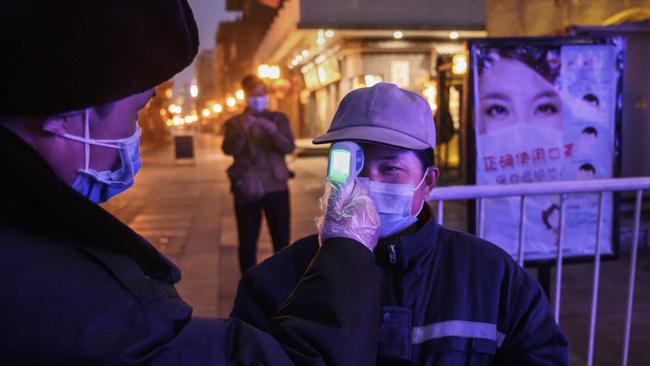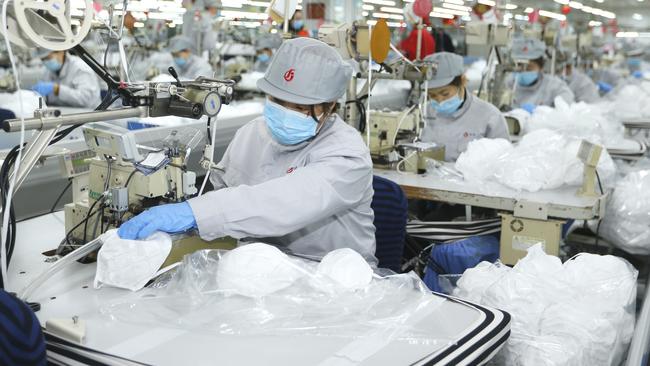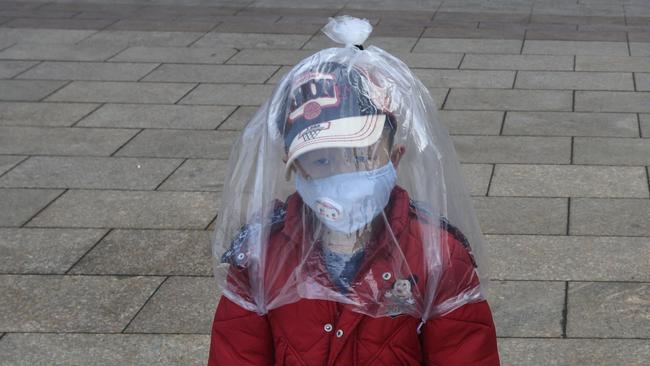Brett Sutton: This virus is a threat but, together, we can beat it
There is reason for the anxiety and fear surrounding the coronavirus outbreak but by working together, and not giving in to panic, we can get through this, writes Brett Sutton.
Opinion
Don't miss out on the headlines from Opinion. Followed categories will be added to My News.
There’s been much talk of panic related to the novel coronavirus in recent weeks. Should we panic? Should we not? Are we panicking? The reality is true panic is very rare. I don’t think we’ve seen panic related to coronavirus.
What we’ve seen is anxiety, intense awareness and — yes — some over-reaction. None of that is particularly surprising.
We’re talking about a new threat, unfamiliar to most, where the true picture of its danger is yet to play out. Anxiety is a very human reaction and there will be a period of emotional adjustment to be able to consider the threat in perspective.
We’ve seen the very best, and worst, of people in response. The brave, selfless and hardworking medical staff in Wuhan and across China have been heroic. Some have literally paid with their lives and we owe them a huge debt.

We’ve also seen discrimination, stigma and racism, which I condemn. What we are facing is a profound collective challenge requiring a collective response.
But are we heading for a pandemic? And just how concerned should we be at the prospect of this epidemic, largely centred on China, spreading around the world.
The good news is China is taking extraordinary measures to control this epidemic and there are some early signs it might be working, at least outside Wuhan, in Hubei province. New cases have stabilised outside Hubei, and it will be important to watch closely now the country has returned to work after the extended Chinese New Year holiday.
The mortality rate also appears to be lower than it first appeared, perhaps as low as 0.2 per cent or one in 500 confirmed cases.
And, like SARS, it appears that although this novel coronavirus can infect children, the disease appears to be most mild for the youngest. But it is concerning new cases in Hubei still number the thousands and there may be many more thousands undiagnosed. That makes it tricky to isolate and follow up close contacts.

If mild cases are more common than first thought, it will be harder to break the transmission chain as those individuals may not seek care and unwittingly transmit to their close contacts.
We’ve also seen reports of newly-confirmed cases with no travel history to China.
So, there may be undetected transmission in Singapore, Thailand and elsewhere.
That makes a pandemic more likely. For all those reasons, Victoria is stepping up to plan and prepare for a pandemic.
I speak daily with my counterparts across the country and my team is working hard with the health and emergency sector to have as much guidance for all those involved in responding.
And GPs, emergency department staff, labs and many others have done brilliantly to test those at risk. We now have four patients discharged or cared for at home in Victoria. There is no one we know of in Victoria who could be a source of transmission to others.
But we need to continue testing scores of at-risk individuals every day, even as travel restrictions remain.

A pandemic, even if this coronavirus is relatively mild, would still impact the health system enormously.
A huge increase in people seeking healthcare would require us to be patient, collaborative and to work hard to implement measures to manage the additional pressures.
That’s why we’re hoping for the best and preparing for the worst.
And finally, the poor pangolin.
Details are scarce, but it may be that the world’s only scaly mammal is an “intermediate host” of the virus we now know as COVID-19.
Although likely to originate from bats, the virus may have infected pangolins and mutated sufficiently to allow transmission between people.
Genetic analysis suggests this scenario is plausible. It may seem academic but it’s another reminder that nearly three-quarters of newly discovered bacteria and viruses that cause human infections come from animals.
So we need to ensure our public health, disease surveillance and laboratory capability are maintained.
I know we’ll manage whatever comes next, but we must work together, rise to the challenge and support each other in doing so.
Dr Brett Sutton is Victorian Chief Health Officer.
